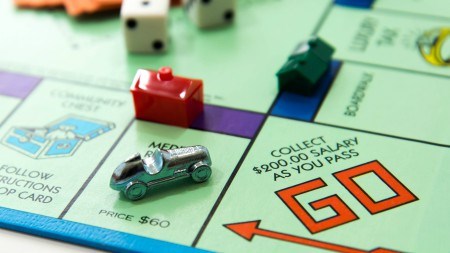Monopoly has various real life lessons to be learnt about buying property and owning a home.
The large numbers of attendees at the annual Property Show by Private Property in Johannesburg highlighted the hunger of many first-time buyers who were willing to give up their Saturdays just to learn more about how to enter the property market.
According to Regional Director and CEO of RE/MAX of Southern Africa, Adrian Goslett, purchasing your first home can be intimidating, which is why it can be helpful to think of the process in more familiar terms. “First-time buyers should not allow themselves to be overwhelmed by the seemingly complex terms involved in buying a home. In reality, buyers already understand more of these concepts than they might think. In fact, anyone who has played a game of Monopoly is already familiar with some of the key aspects involved in purchasing real estate,” Goslett explains.
The first of which is how difficult it can be to get your hands on enough cash to purchase the property.
“In the board game, you have to throw just the right dice to land on the right block and collect some extra cash. It can feel the same way when applying for a home loan. You need just the right credit score and monthly income to qualify for the extra cash to purchase a property. I would recommend getting in touch with a bond originator service, such as BetterBond, to make it a little easier to roll the right dice when applying for your home loan,” Goslett recommends.
The second lesson we learn is that it can take a long time to save up before we can afford to purchase anything. We have to keep going around and around the board until we eventually hit enough pay days to afford the property. This is much the same in real life. But, in real life, wealth is accumulated over time rather than handed to you at the start of the game.
Another thing that this game teaches us is that utilities can be a lot more expensive than you bargained for.
“We all had that one friend who would purchase the utility card as soon as he landed on it. Everyone always felt sorry for this guy until they landed on his block and it was their turn to roll the dice to find out how much they owed him. Most first-time buyers forget to factor in things such as utility bills, rates, taxes, and special levies into their budget. I would highly recommend finding out what these things cost before going ahead with the offer to purchase,” Goslett advises.
The last and probably most important thing this game teaches us is that location is everything.
“If you purchased on the wrong spot on the board, it doesn’t matter how many hotels you add, you simply won’t be able to beat the player who purchased the most expensive and best located lot on the board. Similarly, if you purchase a property in the wrong suburb, you will struggle to make a good return on investment when you later decide to sell. That’s why it is so important to work through a real estate practitioner that you can trust. They can advise you on which areas are better avoided and which are more likely to generate higher returns,” says Goslett.
As much is there is to learn from this board game, Goslett still recommends all first-time buyers to get in touch with their nearest RE/MAX Office and arrange a free coffee date with a real estate advisor to find out more about what it takes to enter the market.


